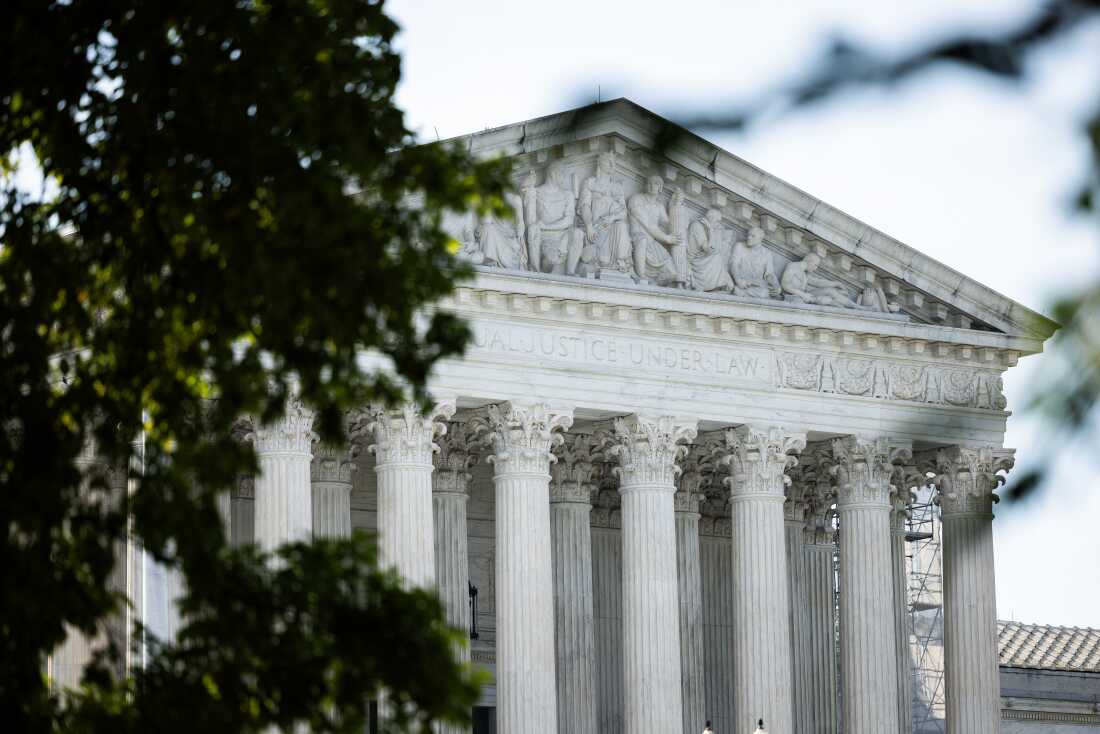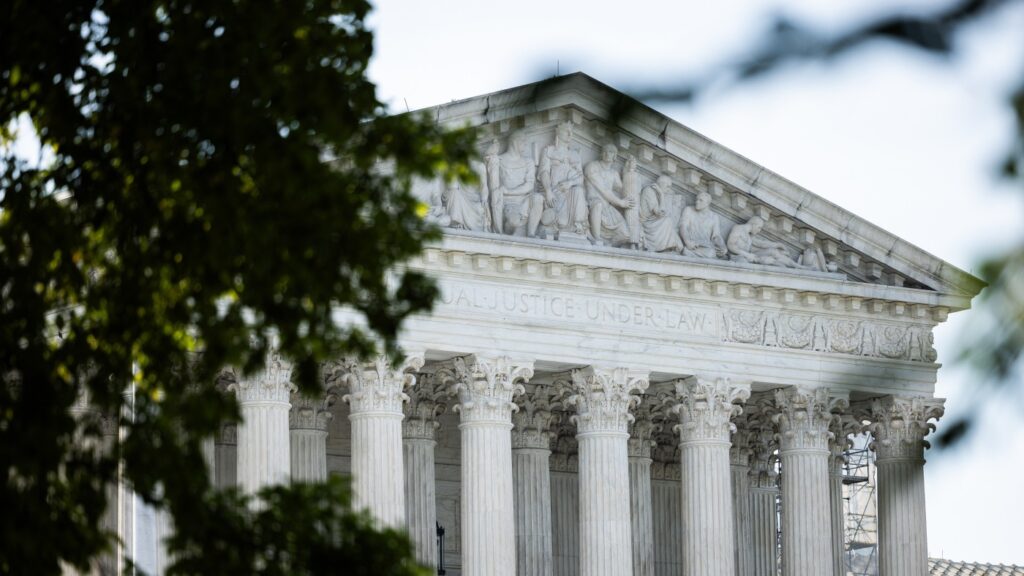
The U.S. Supreme Court in Washington, D.C. on Wednesday. Tierney L. Cross/Bloomberg via Getty Images Hide caption
Toggle caption Tierney L. Cross/Bloomberg via Getty Images
A U.S. Supreme Court decision mistakenly and briefly posted on the court's website suggests Idaho could allow abortions in cases of medical emergencies, Bloomberg News reported, after obtaining a copy of the decision.
If the court were to actually rule in this way, it would reinstate a lower court ruling that allowed hospitals in the state to perform emergency abortions to save the mother's life.
It's unclear if the decision is final. If the 6-3 decision is upheld, the court would dismiss Idaho's appeal without considering the core issues in the case. Justices Clarence Thomas, Samuel Alito and Neil Gorsuch dissented, according to Bloomberg. The Supreme Court is expected to issue its final decision on Thursday and Friday.

A ruling would surely thrust abortion back into the political spotlight just months before the presidential election, but its coincidental release on Wednesday may defuse some of the hostility toward the Supreme Court that was stoked by its decision two years ago to overturn Roe v. Wade.
Congress passed the Emergency Medical Treatment and Labor Act, known as EMTALA, in 1986 to prevent hospitals from refusing to treat uninsured patients or dumping them on other hospitals. The act requires that hospital emergency departments must stabilize patients whose lives or health are at risk as a condition of receiving Medicare and Medicaid funding. If the hospital cannot do that, it must transfer the patient to another hospital.

All was well until the Supreme Court overturned Roe. Within weeks, the Biden administration had issued guidelines to hospitals on how to comply with emergency medical provisions under EMTALA, and the Department of Justice had sued the state of Idaho for banning abortions in the face of emergencies that pose a serious threat to a pregnant woman's health but not an immediate threat to her life.
The posted decision rejected Idaho's argument that it has the right to decide how to balance the health of the mother and the interests of the fetus. State law makes it a felony to perform emergency abortions on women whose organs or future fertility are at risk but whose lives are not at risk. The state argued that EMTALA was not intended to impose a nationwide standard of care, pointing out that EMTALA refers to “the fetus” in four places.



